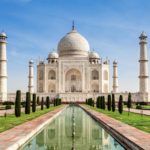There is no doubt that the new COVID-19 pandemic has shaken our false presuppositions about security and safety down to their core. Right when we thought there wouldn’t be a global pandemic outbreak any more, the virus struck and took away hundreds of thousands of lives.
In response to this health crisis, the world governments have been swift to respond with various bans and regulations. Granted, some of these restrictions were necessary to avoid large numbers of infections and deaths, there were still many regulations that had no direct connection to the battle against Coronavirus. Let’s take a look at some of the most egregious cases and see how governments can use public panics like this to further curb civil liberties.
China’s battle against COVID-19… And public liberty
China is obviously the number one choice when it comes to discussing the Coronavirus, as its Wuhan province was the original area where the pandemic started out. Being the starting point for COVID-19 would surely put a lot of “pressure” on the Chinese government to come up with ways to limit the spread of the virus not only within its borders but outside as well.
And in retrospect, it seems like the Communist government has done a little bit more than what was expected of it. In fact, it did too much to extend its censorship and surveillance to Chinese society.
Those who contradicted the official narrative about the virus, as well as those who merely sought credible health information, were met with heavy censorship and banning from the online world – the one that is already restricted by the “Great Firewall.” In a short amount of time, there were more than 550 keywords banned from WeChat and YY such as “Xi Jinping + Epidemic + Government + Negative,” “Wuhan + Pneumonia + Virus + Li Keqiang,” and lots more. Full information about banned keywords can be found on The Citizen Lab.
But that’s not where China’s efforts end. In a new surveillance program, the government has released a new app that assesses citizens’ health conditions, puts a certain color designation to them, and then determines whether they can move across the country without interruption. Of course, the details provided to the app are automatically sent to the Chinese police.
The dangerous nature of the monitoring platform such as this can hardly be overestimated. Sure, one can argue about the necessity of limited control over entities operating within the country. It can even be argued that the businesses, NGOs, and other societies need to be responsible to the government and its guidelines in order to rule out the possibility of scams and frauds, as the IQ option review here shows. However, when a surveillance mechanism such as the ones we’ve mentioned above are deployed, they make it almost impossible to have the freedom to move or say anything that goes against the official narrative.
Russian “efforts”
China isn’t alone in this. Its northern neighbor Russia is also pretty intensely targeting those who go against the government propaganda. On March 10, Moscow restricted gatherings that contained more than 5,000 people, a decision justified by the necessity of social distancing.
However, the suspicious thing about it was that it was ruled the same day as Vladimir Putin “officially supported” the initiative allowing him to remain the president until 2036. While not suggesting anything specific, it is still worth noting that Moscow is a heart of the Russian protest against Putin’s unilateral rule, and suppressing the right to gather and protest is certainly going to help the new initiative turn into a law.
Surveillance is another weapon used by the official Moscow against the pandemic, and occasionally its citizens. The city government has deployed a live facial recognition system that identifies people that break the quarantine rules. While officially justified by the fears of Coronavirus, this surveillance mechanism is pretty often used against anti-government protesters. It may not be a wild stretch to suggest that the policies such as these are likely going to remain active long after the COVID-19 outbreak has ended.
A small country with the same inclinations
Moving a bit south from Russia, its small neighbor Georgia is experiencing characteristically the same developments. When the pandemic broke out, the Georgian Dream government was quick to initiate an emergency situation across the country. But it soon turned out to be the beginning of much stricter bans.
About two weeks after the emergency situation was deployed, the government announced the curfew from 9 p.m. till 6 a.m, restricting any type of movement in the country, be it private cars, public transportation, even a casual walk. Sure, the government used the same arguments for its decision as China and Russia but what it failed to explain is how exactly is the spread of Coronavirus is associated with specific hours of the day; is the 9 p.m. – 6 a.m. period super-conductive of the virus or what?
Unfortunately for the Georgian people, it didn’t end with that. As the Orthodox Easter approached, the government made a decision to ban all types of car movements all-day-long. Supposedly, it would limit the number of people following the tradition and going to their relatives’ graves to celebrate Easter. The restriction should’ve been effective for four days but the government extended that period by an additional week.
These restrictions on public gatherings and movements were enacted by the name of public safety but it is more likely that the government had some dividends in it. General elections are about to be held in October 2020 and the ruling Georgian Dream party has to restore its public image: the one it shattered during a recent couple of years. By presenting itself as a caring and benevolent government, it hopes to gather the majority of votes on the elections. Once again, strictly political goals are rooted deep within those restrictions.
Public safety vs. individual liberties?
The intellectual space knows one particular dilemma that is an underlying theme for the major ideologies: is public safety more important than individual liberties? The answer to that question is what ultimately led to the creation of libertarianism, socialism, and other ideologies.
Now, while we as libertarians would like to think that it’s all about our individual liberty and the government should never interfere with it in the name of security, lots of people would immediately disagree with this presupposition. They would argue that rational restrictions are necessary to ensure that during the health crisis such as we’re in right now, not one person becomes the reason why another person got infected and possibly died even.
This kind of debate has always been relevant and there’s nothing bad about it. However, the extent to which the world governments are curbing civil liberties today is far beyond this debate. China, Russia, Georgia, and even the most developed Western democracies have plunged into this hazard of overwhelming restrictions in the name of public health. In times like these, it is always important to remember that any restriction imposed by the government should undergo serious scrutiny and should only be enacted once its immediate necessity has been proven.





1 comment
… [Trackback]
[…] Read More on to that Topic: thelibertarianrepublic.com/does-a-ban-for-the-sake-of-protection-put-personal-liberty-in-danger/ […]